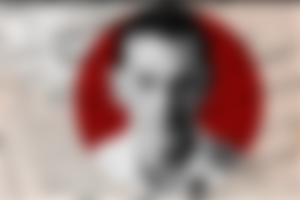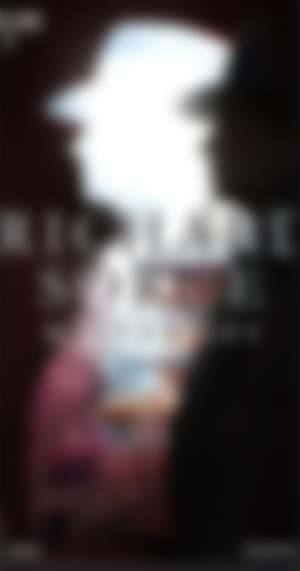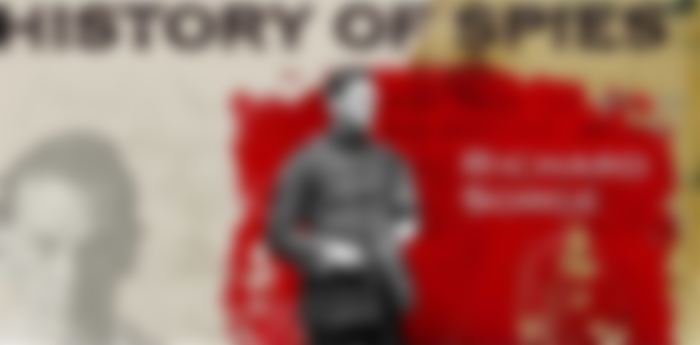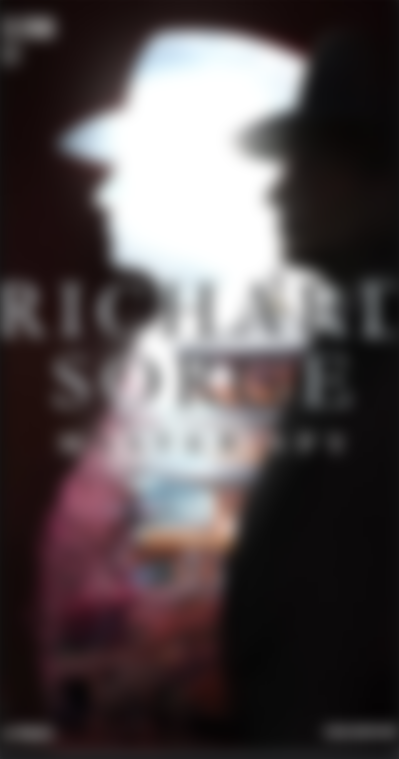
Zorge was probably the most successful international spy of the 20th century. He was born in 1895 in the city of Baku (which then belonged to the Russian Empire). His father was German and his mother Russian. A couple of years after his birth, he moved with his family to Germany, where he grew up in aristocratic circles of German society. Historians, however, agree that Russian roots left a deep impression on Zorge in his youth.
He joined the German army before the beginning of the First World War, and was even awarded the Iron Cross. After demobilization due to injury, he became acquainted with the works of Karl Marx and became a socialist. He completed his doctorate in 1919 and joined the Communist Party of Germany. In the next few years, Zorge often took part in the agitation of the Left.
Due to problems with the German authorities, he fled to the Soviet Union in 1924 and joined the Comintern - a Soviet structure that served as an instrument for working with foreign communist parties. Zorge first reflected in the role of a military intelligence agent in the early 1930s in China.
At that time, he had already gained a reputation as a "womanizer". "Zorge was handsome and charismatic. "Women couldn't resist him, and men admired him," Stuart Goldman wrote in an article on History Net. He was married to a Russian woman (theater actress), but he had many mistresses.
Japan annexed Manchuria in 1932, after which Moscow began to worry about Japanese plans for the Soviet Far East. Zorge was given the task of creating a network of agents in Japan in order to find out as much as possible about Tokyo's intentions regarding the Soviet Union.

The editor of a newspaper in Germany agreed to send Zorge as a correspondent to Japan. He even wrote a cover letter to Colonel Eugene Otto, the German military attaché in Tokyo. It turned out to be the perfect cover for Zorge. Ott, who would later become the German ambassador to Japan, inadvertently helped Zorge set up an agency in Tokyo, and was one of his best informants for the next few years.
He worked with Richard Zorge in the so-called Zorge's ring, together with Max Clausen, Ozaki Hotsumi and Miyagi Yokota and Yugoslav journalist Branko Vukelic. Vukelic was employed by the French newspaper Havas and Belgrade's Politika as a special correspondent. Vukelic's main activities were gathering information from Japanese newspapers and magazines, as well as from embassies and journalistic contacts, and he was also in charge of the photographic business.
Zorge lived near the Tokyo police station and was often seen in public making drunken noise, surrounded by women. Some historians believe that Zorge was in an intimate relationship even with Eugene Otto's wife. The German ambassador probably saw it all through his fingers because Ot helped him get to know the Japanese political scene better, which can be concluded on the basis of individual reports.
The most important discoveries

Zorge learned about the German-Japanese negotiations against the Anti-Comintern Pact, which were directly directed against the Soviet Union. It was one of his first spy successes in Japan. Then, in 1939, he warned of attempts by Japan to persuade Germany to form an anti-Soviet military alliance, which prompted Joseph Stalin to intensify negotiations with Berlin that resulted in the Molotov-Ribbentrop Pact. The move completely thwarted plans for Japan to attack the Soviet Union along with Germany, thus forcing the Russians to fight on two fronts.
As early as December 1940, Zorge warned that Germany could attack the Soviet Union. According to Robert Weimant's book "Stalin's Spy", Zorge informed Moscow on May 30, 1941, that the attack could begin in the last weeks of June. Stalin decided to ignore those warnings, and said of Zorge that he was "a freak who reopened factories and brothels in Japan." Historians are still debating whether Zorge told Moscow the exact date of Operation Barbarossa. In any case, as soon as the attack began, Stalin immediately changed his attitude towards the top intelligence officer.
If Japan had attacked the Soviet Far East at the same time as Germany attacked on the European front, the consequences would have been catastrophic. However, Japan was at war with China and had to decide whether to attack the Soviet Union or the French, British and Dutch colonies in Asia.
Hotsumi Ozaki was close to the Japanese government and helped Zorge assess the danger that Japan posed to the Soviet Union. Zorge informed Moscow that Tokyo would focus on the southern front and attack Russia only if the Red Army was quickly defeated in the war against Nazi Germany. The master of espionage managed to get confirmation from Otto about how Germany did not convince Japan to attack the Soviet Union without delay
.Based on these data, in November 1941, the Soviet Union transferred 15 infantry and 3 cavalry divisions, 1,700 tanks and 1,500 planes from the Russian Far East to the European front, writes Stuart Goldman. "It was this powerful reinforcement that reversed the situation in the Battle of Moscow in the first week of December 1941, at the same time as Japan attacked Pearl Harbor," he writes in the History Net.
Arrest

Zorge's secret radio messages were encrypted with a one-time key (Soviet encryption technique) and looked like "abracadabra" to the Japanese secret police. Still, Zorge was suspected. A Gestapo man from the German embassy was given the task of following him, and so Zorge was finally caught.
Other reports suggest that the seamstress, who was recruited by lower-ranking agent Ozaki, betrayed Zorge's agents when she was arrested. Richard Zorge was arrested in October 1941. He agreed to cooperate with the authorities if they promised not to arrest his mistress Hanako Ishi and the wives of his colleagues. The Japanese accepted that condition.
After three years in prison, the Japanese authorities offered Zorge in exchange for a Japanese man who was imprisoned in the USSR, but the Soviets stated that they did not know him. His return to the Soviet Union would not suit Stalin, because he ignored Zorge's warnings that Germany was preparing an attack.
Zorge and Ozaki were executed in 1944. Zorge's mistress Ishi was spared and later received a Soviet pension.
After the end of World War II, this great hero was not promoted to the Soviet public for almost two decades, until 1963, when Nikita Khrushchev made a French film called "Who are you, Mr. Zorge?", Whose plot is based on a very impressive the life of the maestro Soviet spy Richard Zorge. According to the eminent historian Stuart D. Goldman, the Soviet leader, asked the KGB leaders if that was a true story. The answer was yes and Zorge was posthumously awarded the title of Hero of the Soviet Union.
Admirers of Soviet intelligence include the English writer and naval officer Jan Fleming. "Zorge is the man I consider the most dangerous spy in history," Fleming writes of an informant who probably served as the inspiration for the James Bond novels.




Ja sam citala knjigu o njemu i stvarno mi je bila zanimljiva. Mora da je bilo tesko voditi takav zivot, uvek na oprezu.